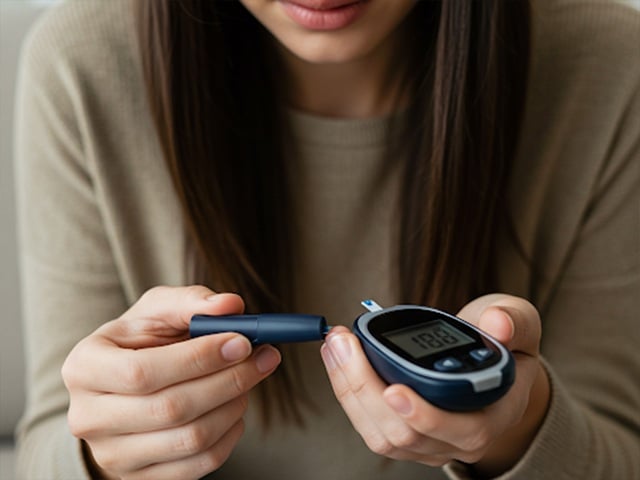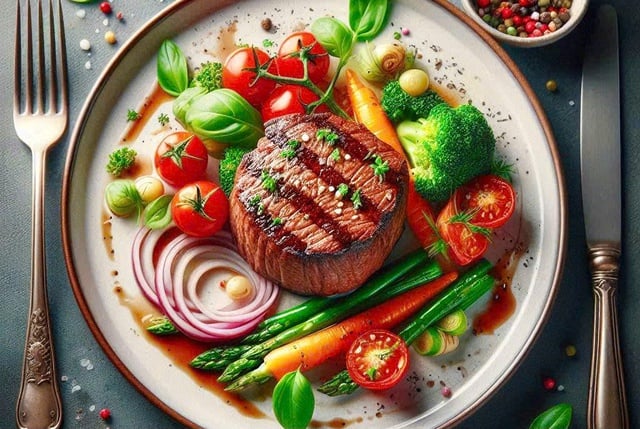The American Diabetes Association recommends that people with diabetes focus on eating a balanced diet overall: Limit foods high in saturated fat and salt (sodium). Saturated fat and sodium can affect blood sugar by worsening insulin resistance or increasing blood pressure. Here, experts explain why these two non-sugar substances raise blood sugar, according to the health news site Eating Well .
Saturated fat and sodium can affect blood sugar levels
Photo: AI
Why should you pay attention to saturated fat?
Saturated fats are commonly found in animal fats, red meat, whole milk, margarine, coconut oil, cream, and some baked goods such as cookies.
High saturated fat intake increases the risk of heart disease, which people with diabetes are already at higher risk of.
In particular, too much saturated fat can affect blood sugar by increasing the risk of insulin resistance, making it harder for glucose to move out of the blood and into cells.
Saturated fats, especially from meat and dairy, can increase insulin resistance, making it harder to control blood sugar, explains Kathy Levin, a diabetes educator and founder of Nutritiously Simple. Fat doesn't raise blood sugar directly like carbohydrates, but it can affect blood sugar through insulin sensitivity and metabolism, according to Eating Well .
Can fasting cure cancer?
Saturated fat also indirectly affects blood sugar levels through its effect on insulin action. Dietary fat has a profound effect on insulin action over time, says Lauren Plunkett, a diabetes educator and care specialist at the American Diabetes Association. This interaction is especially important for people who take insulin.
Levin recommends limiting saturated fat to 10% or less of your daily calories, but not cutting it out completely. Instead, choose unsaturated fats from avocados, nuts, olive oil, and fatty fish.
Saturated fat is often found in animal fat and red meat.
Photo: AI
Why pay attention to sodium?
For people with diabetes, although too much sodium doesn't directly cause blood sugar spikes, it can lead to high blood pressure — an important risk factor for diabetes.
One study found that balancing sodium intake led to better recovery and survival in patients hospitalized with hyperglycemia. To prevent hypertension, focus on less processed, low-salt foods and choose foods rich in potassium.
Another problem is that foods high in sodium—like fast food, packaged snacks, and fried foods—also tend to be high in saturated fat and low in fiber. Highly processed, salty foods often contain refined carbohydrates and additives that increase systemic inflammation and worsen insulin resistance, Levin says. Whole, low-sodium foods help stabilize blood sugar and reduce inflammation.
Additionally, to control blood sugar, it is necessary to have an overall healthy diet, exercise, get enough sleep and control stress.
Source: https://thanhnien.vn/chat-dinh-duong-khong-ngot-khong-ngo-anh-huong-den-duong-huyet-185250515000024328.htm




































































































Comment (0)